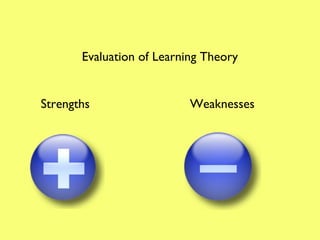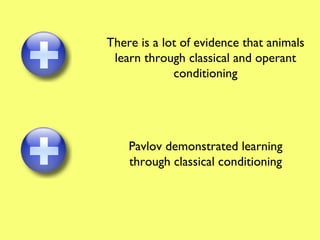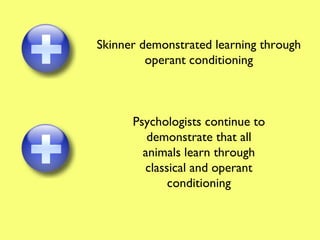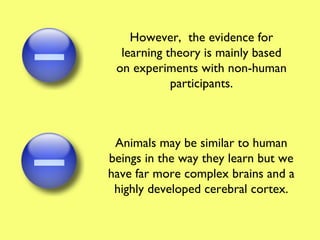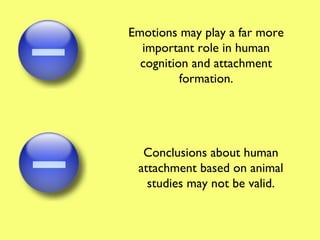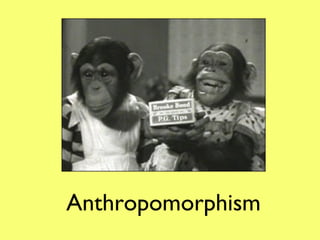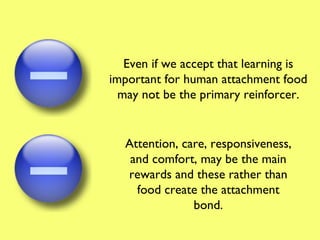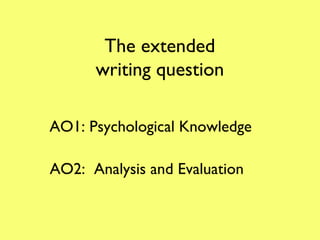While learning theory has been demonstrated through classical and operant conditioning in animal studies, its application to human learning and attachment may be limited. Animals are similar to humans in how they learn but humans have more complex brains and emotions that likely play a larger role. Also, rewards beyond just food, like attention and comfort, may be more important than food in forming human attachments.
